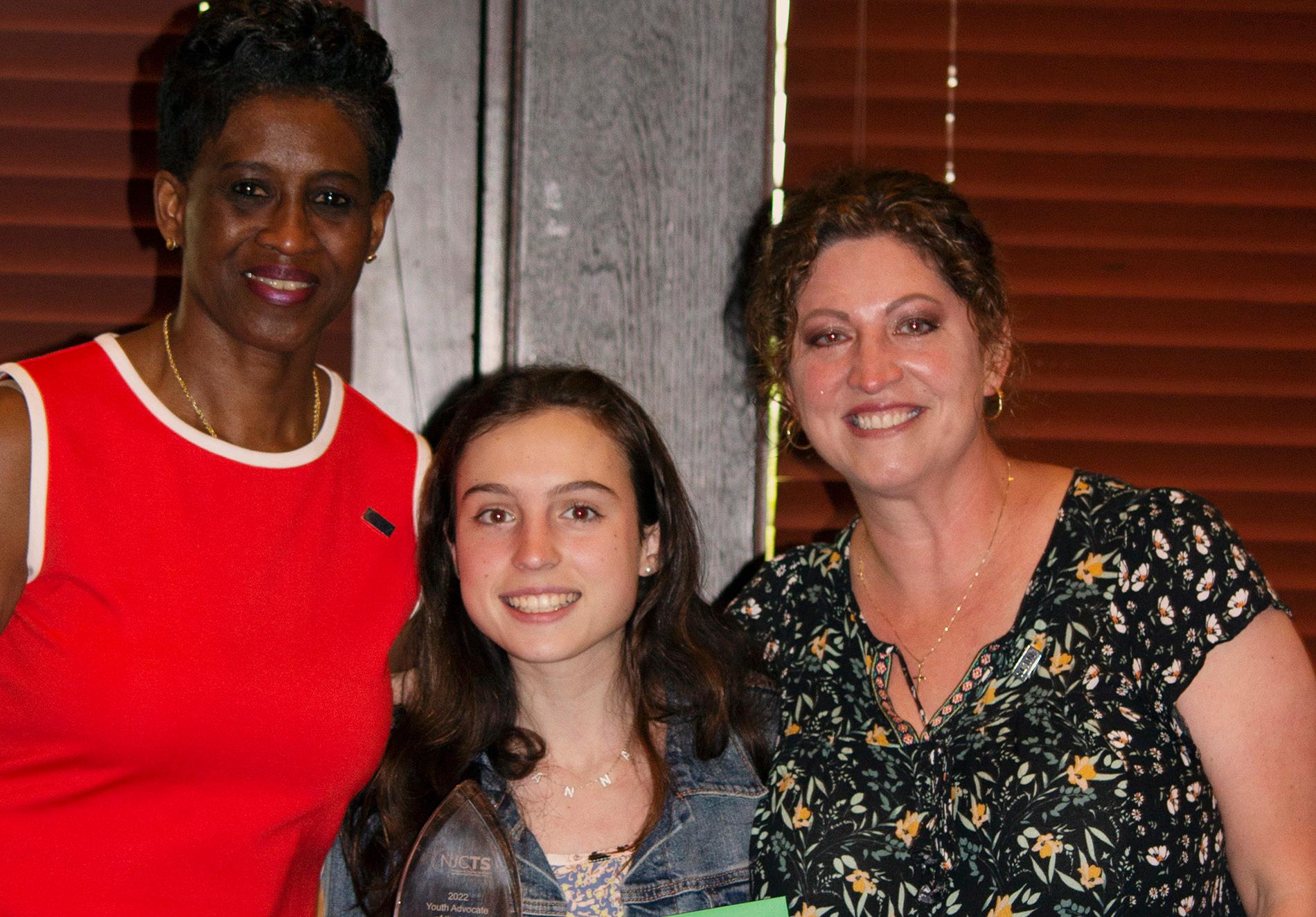
2 minute read
Community Outreach
from NJCTS 2022 Year in Review
by njcts
NJCTS offers Community trainings designed to support professionals in community-based organizations across New Jersey, providing information about Tourette Syndrome and its associated disorders.
This outreach has provided NJCTS with the opportunity to collaborate with a wide range of social and human service agencies with the goal to connect families in need with the support and services available through NJCTS.
Advertisement
2022 Community Presentations
• Ocean County Council for Young Children
• Family Support Organization of Burlington
• Family Partners of Morris & Sussex Counties
• New Jersey Parents Caucus
• Mental Health Association of Essex and Morris Inc.
• SPAN Parent Advocacy Network
• United Advocacy Group
• The Arc of New Jersey
Youth Advocate Presentations
As part of the NJCTS continuum of services for youth, the Youth Advocate program trains a new generation of leaders who educate others about the neurological disorder and gain an in-depth understanding of TS and associated disorders.
Classrooms and organizations across New Jersey gain invaluable perspective about life with Tourette Syndrome from NJCTS Youth Advocates. The Youth Advocate program provides teens and young adults—who are 13- to 18-year-olds and either have a diagnosis of TS or live with a family member with TS—with opportunities for training in leadership and advocacy.

Since the program began, NJCTS Youth Advocates have conducted more than 500 presentations to individual audiences as large as 800 students, raising awareness, standing up to bullying, and increasing understanding of this often-misunderstood disorder.
Schools Our Youth Advocates Presented For in 2022:
• Oxford Central School
• J. Mason Tomlin School
• Lincoln Elementary School
• Mt. Olive Middle School
• Grace M. Breckwedel School
• Women’s Literacy Club of Bound Brook
• Camden ECCS
• Family Partners of Morris and Sussex Counties
Youth Advocate Presenters:
• Kyle Swords
• Sam Regan
• Gili Ben-nun
• Gavin Kiley
• Savannah Porter
NJCTS works with hospitals throughout New Jersey to present Grand Rounds trainings for doctors, nurses, and other healthcare providers.

Grand Rounds are presented by Tourette Syndrome experts and a teenager or young adult to groups of between 25 and 100 physicians and/or students. The NJCTS Youth Advocate or family describe their experience with TS at school, at home, and in the community, and focus on initial diagnosis, quality of life, and encounters with physicians and the healthcare system.
Presenters:
Dr.
First Responder Training
The goal of the medical education program is to help medical professionals enhance their understanding of the perspectives, stresses, and needs of patients with tic disorders and their families, and to improve interpersonal and communication skills in patient encounters.
2022 Grand Round & Medical Presentations:
• Youth Consultation Service (YCS)
• Penn Medicine Princeton Medical Center
• Kearny School District Nurses
• Stress and Anxiety Services of NJ
• Rutgers Graduate School of Applied and Professional Psychology

2022 Law Enforcement In-Service
• Middlesex County Prosecutor’s Office Police Training Center CIT

Presenters:
• Cheryl Ludwig
• Youth Advocate Kyle Swords
Introduced in 2018 and designed for law enforcement personnel, emergency first responders and firefighters, NJCTS’ new community awareness program strives to bring awareness of TS, associated disorders and symptoms to those responsible for public safety.
Conferences
2022 Conferences Attended by NJCTS
• SEPAG Parent Retreat
• NJCIE Summer Inclusion Leadership Conference
• NJ Education Assocation (NJEA)
• Act Now Foundation’s Dementia Center
• Ocean County College’s Disability Resource Fair
• New Jersey School Conference Association
• NJAAP School Nurse Health Conference
• New Jersey Child Care Association
• Oldmans Township School District
• Plainfield Family Success Center Health & Resource Fair
Participants review the implications of TS and how it may impact an individual’s actions in a high stress situation. They also learn de-escalation techniques and how to respond to the typical TS behaviors to avoid further confrontation.










